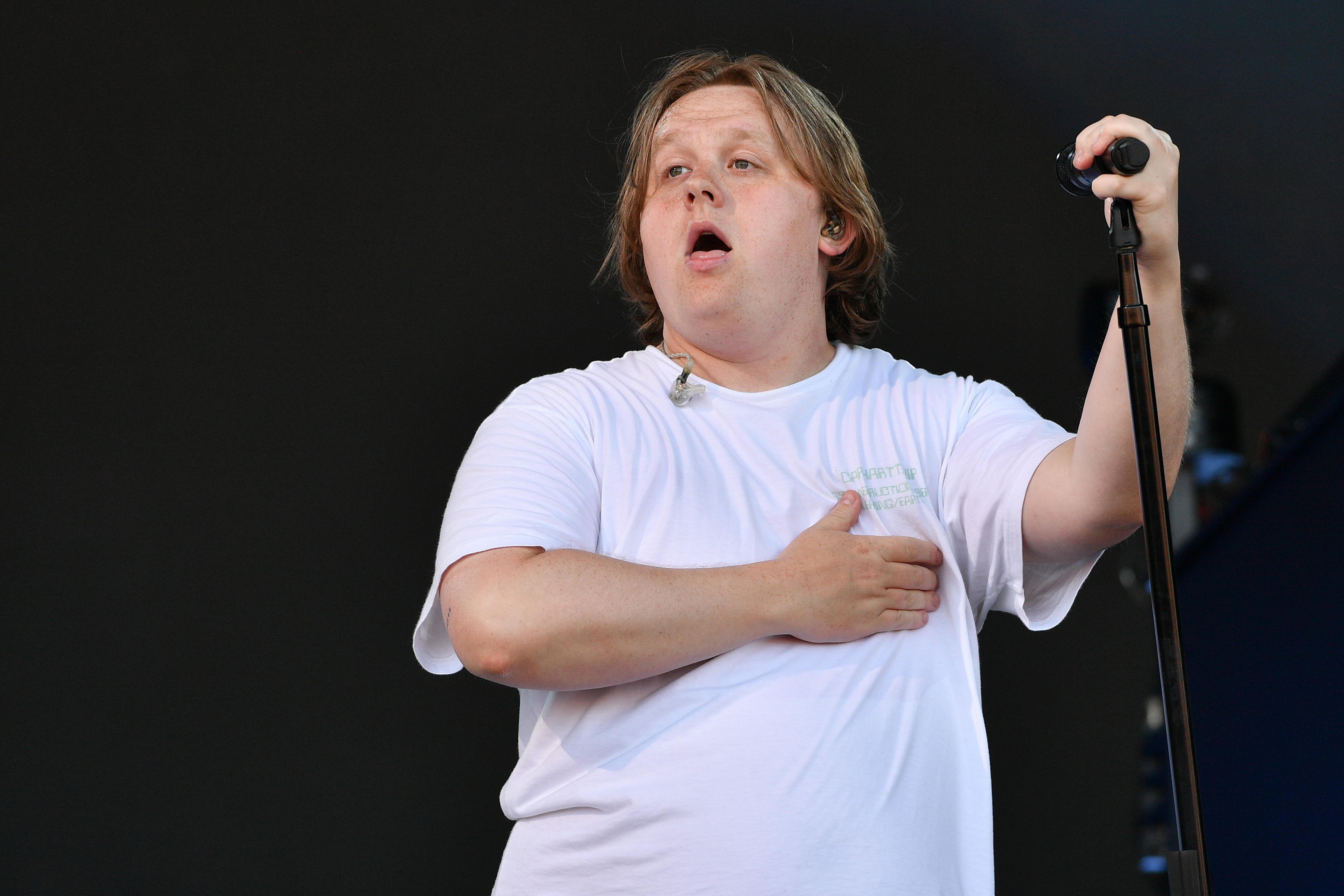The air was electric, charged with the anthemic energy that defines a Lewis Capaldi concert. But in the middle of a soaring ballad—the precise moment where the emotional current was highest—the star paused. He stopped everything. He hadn’t forgotten the words; he had simply seen something more important than the performance: a young fan in the crowd singing with uninhibited joy, despite the involuntary movements caused by his Tourette’s syndrome.
Capaldi, who has been publicly transparent about his own struggles with the condition, immediately recognized a shared experience, a mirrored vulnerability. He cut the music, silenced the instruments, and pointed into the vast audience, inviting the boy’s story onto the stage.

Courage Under the Lights
What happened next wasn’t a planned stunt; it was an act of spontaneous, pure kindness and recognition. Capaldi stepped away from the microphone, leaving his own platform, and directed the spotlight onto the young fan. The camera zoomed in, and the boy, initially shy, found his voice when the entire stadium cheered him on.
Capaldi knelt again, speaking quietly to the boy, then simply held his microphone out, inviting him to sing a verse. The audience held its collective breath.

The young fan, emboldened by the massive wave of support and the genuine empathy radiating from Capaldi, began to sing. His voice, clear and strong, filled the arena. Though his body occasionally twitched—a public, physical manifestation of his disorder—his spirit was unbroken and his voice soared, perfectly hitting the emotional notes of the song. He was completely seen and, for perhaps the first time in such a public setting, completely accepted.
For one young fan, it was the night his dream began. For everyone watching, it was a reminder of why Lewis Capaldi’s music touches hearts far beyond the stage.
Ninety Thousand Hearts Beating As One
The sheer vulnerability of the moment brought the entire audience to tears. It was a powerful, unspoken validation for anyone who has ever felt different, struggled with an unseen battle, or worried about being judged.
Capaldi gently re-entered the song, not taking the lead, but harmonizing softly, supporting the young voice beside him with the quiet strength of a brother. The duet wasn’t about musical perfection; it was about courage, resilience, and connection. Ninety thousand hearts in the arena pulsed with a single, overwhelming feeling of compassion and shared humanity.
The moment served as a profound reminder that music is not just entertainment; it is a powerful tool of communication and healing. It reaches where words often fail, offering a safe space for the vulnerable. By stopping his show, Lewis Capaldi didn’t just give a fan a moment of fame; he used his platform to champion visibility and empathy, proving that the most important performance isn’t always the one that’s rehearsed—it’s the one that’s real.






